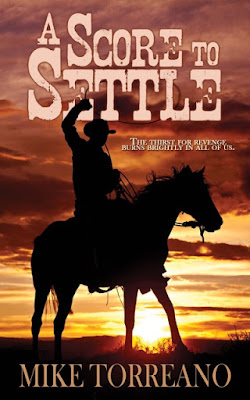Mystery writer and fellow Wild Rose Press author Randy Overbeck visits Journeys with Jana today. My guests have often talked about the importance of secondary characters to a book, but Randy argues that getting even minor characters right has a big impact on the story world the writer creates, and makes it that much more real. Please welcome Randy Overbeck!
When readers think of great mystery and thriller writers, they almost always think major protagonists. If you mention Lee Child to a fan, they’ll think Jack Reacher. If you raise Jeffrey Deaver, you’ll probably get Lincoln Ryme and James Patterson will probably yield Alex Cross—at least for his early books. You get the idea. Most of the time we think the novel’s success depends on good plots, great writing and engaging main characters, and we’d be right.
But, as I’ve read and studied some of my favorite authors, I’ve come to realize that these talented writers invest considerable time and effort in creating real, three dimensional characters for even their minor players. I’m not talking about the protagonists’ sidekicks. Patterson seldom brought out Alex Cross without his partner, John Sampson, Lincoln Ryme was paired with Amelia Sachs—in more ways than one—and we couldn’t even imagine Sherlock Holmes without Dr. Watson. More than this, the really best writers, in my opinion, are those who populate their tales with detailed, believable characters at even the smallest level. These rich, minor characters give the narratives depth and infuse the fictional world with an rich sense of reality. I think a few examples here may suffice.
One of my earliest encounters with mystery writers came from famed author Robert Parker. By now, I think I’ve read nearly every Spenser novel and almost all of his other works. Like the ones mentioned above, his hero usually ventures forth with Hawk covering his back. But Parker populates his forty novels with a whole realm of interesting small characters from his cop contacts, Belson and Quirk to his shared German Shepherd, Pearl to his gun-slinging friend, Vinny. But my point here is best made by his character of Dr. Susan Silverman. Susan, a Harvard-trained psychologist, is Spenser’s girl and confidant. Although her part in the story is small—at least in the number of pages devoted to her—her fully-fleshed out character adds great dimension to the tales. Through his interactions with her character, Spenser himself gets rounded out and becomes more authentic. She both keeps him grounded and challenges his decisions. As I read each entry in the series, I found myself looking forward to the next time she would appear.
For my second illustration and different example, I’ve selected another famous and bestselling author, C J. Box. For those not familiar with his work, he writes about the rugged northwest territory of Montana and Wyoming. His protagonist, Game Warden Joe Pickett is a perfect match for this wilderness, whose work takes him on a number of interesting and often perilous journeys among the mountains, rivers and valleys he patrols. Like other great writers, he has created a wide range of supporting players in his dramas from Joe’s wife and partner Mary Beth to his four daughters, from his nemesis /mother-in-law, Missy to the local sheriff Barnum, who Joe is constantly at odds with. But Box has a real knack for creating living, breathing characters who play even the smallest role. As evidence—as they would say in the courtroom—I give you Trophy Hunt, the 24th entry in his series. Partway into this intriguing mystery, Box reveals the character of Tuff Montague. In a little more than three pages, readers learn Tuff despises riding horses, likes to sing about them, wears a droopy mustache and a sweat-stained “Gus McCrae” hat. Like a lot of cowboys, he loves his whiskey, especially when it’s free—which he often receives as he regales newbies with his tales of being a real American cowboy, even acting the part in a Wild West show. In these few pages, we learn that Tuff recently lost his license due to his latest DUI. While he is up in the mountains on horseback, he is both remembering his latest conquest of the local barmaid and pining for his next rendezvous. Wheel-less, he is stuck atop his gelding and grousing about it, even as the horse makes the steady climb up the incline.
Box gives us all this and much more for a minor character who appears only on these few pages and then dies suddenly, one more victim in the complex crime Joe has to solve in this tale. Only later, do readers realize that pieces of Tuff’s description are important clues to solving the puzzle of the murders. While many writers would give only a few lines to a victim, Box makes Tuff live and breathe on these few pages, which makes readers mourn the death of even such a ne’er-do-well.
I’d like to offer one more example from my favorite mystery writer—whose current coming of age novel, This Tender Land, is on the USA Today Bestseller List. William Kent Kreuger is the award-winning author who has penned seventeen novels in the Cork O’Connor mystery series and his latest, Desolation Mountain, is also his best, I believe. His writing in this entry illustrates the ability of small, minor characters to flesh out the story in the hands of skilled author. Anyone familiar with this series will remember the unforgettable character of Henry Meloux, the ancient Ojibwe Mide (or medicine man) who serves as Cork’s conscience and guide through his many trials. Even though his role in these tales are small, often only a few pages, I wait anxiously for him to reappear and share his strange wisdom—both for the reader and for Cork—as I read Kreuger’s latest entry.
But in this novel, the author raises the bar of minor characters for even his work. Early in the story, the reader encounters an older Objiwe, Ned Love and his nephew, Monkey, who, like a number of his Native American characters, live at the fringes of society. Kreuger’s novels are populated with a wide range of interesting, native characters who cover the whole range from good to evil. The two Objiwe natives witness something happening on Desolation Mountain and then seem to disappear—along with others in the town. There is so much happening and Cork has so many problems to deal with, the reader has little time to contemplate these strange minor characters and their disappearance. Only in the end, as these and other minor characters reemerge in the narrative, do readers grasp the skill of the author in using every line, every character to enrich such a captivating story. No character, not even the smallest one is wasted.

I’ve tried to learn from these and many other talented writers as I’ve written my series, the Haunted Shores Mysteries. Like other mystery authors, in my first entry, Blood on the Chesapeake, I matched my protagonist, Darrell Henshaw—teacher, coach and paranormal sensitive—with his own partner and love interest, Erin Caveny, who helps him get to the truth behind the mysteries surrounding his ghostly visitors. Darrell’s teaching colleague, friend and tormentor, Al McClure provides some much needed comic relief—though admittedly little— from Darrell’s serious obsessive nature. But the minor character I created that readers found most compelling was that of Natalia Pavlenco, a recent graduate of Wilshire High. Natalia is a sultry, dark-skinned, captivating young woman with some uncertain Slavic origins. Al introduces Darrell to Natalia so that she can help him with his ghost problem, as Natalia is a medium. But, in the small town of Wilshire, there’s not much call for the skills of a medium. So Natalia moonlights, plying her other talents in what passes for a red-light district in town. She has much to offer in “the lady of the evening” trade and sets her sights on Darrell. This of course generates a conflict between Natalia and Erin, one Darrell has to navigate very carefully as he needs the medium’s insights. Natalia drew such a positive response from readers of Blood that, when I crafted the second novel, Crimson at Cape May, I worked a way to include Natalia, even though the bulk of the story happens outside of Wilshire. And, before you ask, I’m having Natalia make a brief, though important appearance in the third entry in the series—scheduled for release fall, 2021 even though the action here takes place on the gulf coast of Florida.
The lesson from all of this? Maybe we, as writers, should sweat the small stuff, like precise historical details, specific geographic characteristics and most important, the characters who play a walk-on role in our novels. Crafting minor characters who are real, believable and integral to our story gives the narrative added texture and depth and readers will notice.
I do, every time.
BLURB, Crimson at Cape May:
No matter how far you run, you can never really escape a haunted past.
Darrell Henshaw—teacher, coach, and paranormal sensitive—learned this lesson the hard way. With his job gone and few options, he heads for Cape May to coach a summer football camp. The resort town, with gorgeous beaches, rich history and famous Victorian mansions, might just be the getaway he needs. Only, no one told him Cape May is the most haunted seaport on the East Coast. One resident ghost, the Haunted Bride, stalks Darrell, begging for his help.
He can’t refuse.
Joining forces with Cassie, a street-wise teen and another sensitive, he investigates the bride’s death and discovers her murder is connected to a far greater horror. But can Darrell and Cassie expose those behind the crimes before they end up being the killer’s next victims?
EXCERPT:
Why would this woman pursue him?
Now a safe distance away, he studied her. She was thin, with a small, drawn face of pasty skin, and he would’ve guessed her to be about his age, mid-twenties. But there was something about her, something that made him shiver. Did she have a black eye? Were those cuts on her cheek? Why hadn’t he noticed those before, when he passed her on the Promenade?
He sped up, the street crowded, congested with tourists. Normally, the jostling bodies would’ve given him the creeps, but today he was grateful for the numbers so he could blend in.
Not sure where he was headed—except away from his boardinghouse—he kept up a brisk pace. He hurried past the legendary Inn of Cape May, with its ornate, white period architecture and four stories of ancient rooms facing the beach. Any other time, he’d be thinking about taking Erin there. The place had an interesting old-time vibe. That is, if she still wanted anything to do with him. But he didn’t have time for that now. He kept moving.
As he turned back onto Beach Avenue again, the sight of the beautiful blue ocean across the road struck him and he stopped for a moment, then chanced a peek back around the corner. No sign of his stalker.
He reduced his pace, easing past a beach shop, and saw his reflection in the store front. That gave him an idea. Ahead, he spied a coffee shop with two long windows facing the street, the panes so sparkling clean he could see the image of the sun hanging over the ocean in the glass. As he walked along, he turned his head to catch his image and, when he was far enough along, he glanced sideways at the window. Trailing behind him, he could make out, reflected in the glass, only two people, a gray-haired couple. No one else. He took a few more steps, watching and slowing a little, and exhaled. He’d lost her.
He turned and studied the man and woman, who’d paused to examine the restaurant menu posted next to the door. A few feet beyond the couple stood the woman. Darrell’s gaze darted. The couple. The woman. The coffee shop window. Back to her. The petite young woman in the tattered white dress stood hunched not more than ten feet away. Darrell searched for her reflection in the glass. There was not even a shimmer.
Oh no. Not again.
The side of the young woman’s face was beaten and bloodied. Her exposed neck bore a long, ugly purple bruise. The torn dress now had blood seeping across her torso and down her right leg. He looked back. Still nothing in the window. The hairs on his neck stood up.
“What do you want?”
In unison, the pair turned, peered behind and then back at Darrell. The man said, “Son, there’s no one there.”
Darrell kept staring and as he watched, the young woman walked through the older couple and stopped in front of him. This close up, her one deep blue eye—the one not blackened—seemed vacant and carried an emptiness that frightened Darrell. She again extended both pale hands, blood now covering them and dripping off her fingertips. Mesmerized, Darrell watched as fat crimson drops splattered red onto the gray sidewalk.
In her soft voice, she said again, “Please, help me. Help us.”
Darrell shook his head violently. “No. Hell, no. Not again.” Last time almost killed him.
Author Bio:

Dr. Randy Overbeck is a veteran educator who has served children as a teacher and school leader. For more than three decades, his educational experiences have included responsibilities ranging from coach and yearbook advisor to principal and superintendent and he’s lived the roles of many of the characters in his stories. An accomplished writer, he has been published in trade journals, professional texts and newspapers as well as in fiction, with his third published novel. As a member of the Mystery Writers of America, Dr. Overbeck is an active member of the literary community, contributing to a writers’ critique group, serving as a mentor to emerging writers and participating in writing conferences such as Sleuthfest, Killer Nashville and the Midwest Writers Workshop. When he’s not writing or researching his next exciting novel or sharing his presentation “Things That Go Bump in the Night,” he’s spending time with his incredible family of wife, three children (and their spouses) and seven wonderful grandchildren.
Social Media Links:
randyoverbeck@authorrandyoverbeck.com
www.authorrandyoverbeck.com
@OverbeckRandy
FB: Author Randy Overbeck
Buy Links, Crimson at Cape May:Amazon: https://www.amazon.com/Crimson-Cape-Haunted-Shores-Mysteries/dp/1509231633
Barnes and Noble: https://www.barnesandnoble.com/w/crimson-at-cape-may-randy-overbeck/1137088608?ean=9781509231638
BookBub: https://www.bookbub.com/books/crimson-at-cape-may-by-randy-overbeck






















